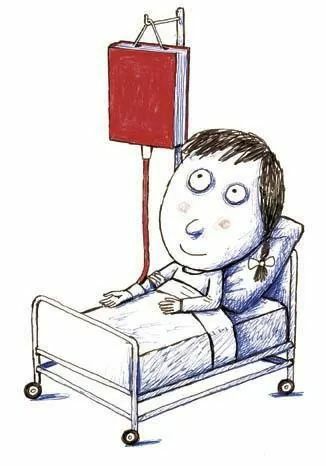 Reading is not a chore. Reading is theft. It is robbery. Someone smarter than you has spent years struggling to solve a problem or researching a new idea. You can steal that hard earned knowledge and make it yours just by reading her book. And you won’t be arrested.
Reading is not a chore. Reading is theft. It is robbery. Someone smarter than you has spent years struggling to solve a problem or researching a new idea. You can steal that hard earned knowledge and make it yours just by reading her book. And you won’t be arrested.
Sam Harris says, “We read for the joy and benefit of thinking another person’s thoughts.” Read good books and you can enjoy and benefit from the thoughts of brilliant people. You can “steal” the time and energy they invested in writing what they have learned.
Here’s a list of books I read in 2018. At the end of this post is commentary on the best five books I read.
The numbers in brackets represent how I rate each book on a scale from 1 (not good) to 10 (exceptional).
January
- The Blue Zones – Dan Buettner – 2008, 303 pages [7.5] – Analyzes five ares of the world that have long life-expectancy rates and offers nine lessons learned from these people groups.
- Little Fires Everywhere – Celeste NG – 2017, 336 pages [7] – I enjoyed her first novel better. The story of families growing up in the upscale neighborhood of Shaker Heights.
- The Midnight Line – Lee Childs – 2017 – ___ pages [7] – I like the protagonist, Jack Reacher, and this book (the 30th in the series) had an interesting plot.
- The Power of Moments – Chip and Dan Heath – 2017 – 295 pages [8.5] – I like everything the Heath brothers write. They combine good research with accessible writing. This book unpacks the importance of, and how to orchestrate, pivotal moments.
- The Couple Next Door – Shari Lapena – 2016, 308 pages [4] – A totally worthless novel. The only reason I finished it is because I was on a transatlantic flight with nothing else to do.
- A Little History of Religion – Richard Holloway – 2016, 237 pages [7.5] – A concise and accessible survey of world religions. I really enjoyed this book.
- Tao Te Ching – Lao Tzu – translated by Arthur Waley – c. 300 BC – 89 pages [6] – The first great classic of the Chinese school of philosophy called Taoism. I did not understand most of this book; it was similar to reading dense, opaque poetry.
February
- How to Read a Book – The Art of Getting a Liberal Education – Mortimer Adler, 1940, 389 pages [6] – Good thoughts on the subject but 389 pages became tedious.
- Why Buddhism Is True – The Science and Philosophy of Meditation and Enlightenment – Robert Wright, 2017, 301 pages [6.5] – I’m wanting to learn more about meditation, but this book didn’t help much.
- The Consequences of Ideas – R.C. Sproul, 2000, 203 pages, [8] – A good survey of the philosophers who have influenced Western thought.
March
- Command and Control – Eric Schlosser, 2013, 485 pages, [8] – Incredibly documented (there are 98 pages of footnotes), it tells the history of the U.S. nuclear age. It’s scary to know how many times we’ve been close to a nuclear holocaust.
- 100 Greatest Scientific Experiments – Robert Cave, 217 pages [7] – Fun book to read; lots of pictures.
- Don’t Believe Everything You Think – The 6 Basic Mistakes We Make in Thinking – Thomas Kida, 2006, 237 pages [8] – This was my second time to read the book. It is accessible and interesting.
- The Words Lincoln Lived By – Gene Griessman, 1997, 136 pages, [6.5] – 52 short chapters on character traits that Lincoln exhibited.
April
- The One Minute Manager Meets the Monkey – Blanchard, Oncken and Burrows, 1989, 130 short pages, [5] – This is a dumbed down version of a great HBR article published in November, 1999. I recommend reading the article.
- White American Youth – Christian Picciolini, 2017, 172 pages, [4.5] – A boring autobiography. I loved the podcast where Sam Harris interviewed Picciolini but didn’t like his book.
May
- On Tyranny: Twenty Lessons from the Twentieth Century – Timothy Snyder, 2017, 126 pages [7] – An insightful read given our current political climate. Anarchy could happen in the U.S.
- My Life as an Experiment: One Man’s Humble Quest to Improve Himself – A.J. Jacobs, 2009, 244 pages [7] – Jacobs is engages in participatory journalism: he immerses himself in whatever he’s writing about. The book is entertaining but not very informative or helpful.
- The Short and Tragic Life of Robert Peace – Jeff Hobbs, 2014, 402 pages [7] – The title describes the book. Lessons to be learned about race, culture, the drug wars, bad decisions.
- The Strange Order of Things – Antonio Damasio, 2018, 244 pages [7] – Damasio is a brilliant physician/scientist but this book leans more toward the professional than the lay-person so I had a hard time understanding a lot of his ideas.
June
- The CEO Next Door – Elena Botelho and Kim Powell, 2018, 254 pages [7] – Based on 17,000 interviews of top executives; a good read on leadership even for those not aspiring to be a CEO.
- The Righteous Mind: Why Good People are Divided by Politics and Religion – Jonathan Haidt, 2012, 371 pages [6.5] – It was difficult for me to keep up with his thinking; my bad. It is written more for the professional than layperson.
- Math in Bite-Sized Chunks – Chris Waring, 2018, 188 pages [7] – I like books that give an overview of important topics, and this book did that with math. 27 short chapters on topics like: percentages, algorithms, averages, correlation, etc.
July
- Commonwealth – Ann Patchett, 2016, 322 pages [7.5] – Patchett is a wonderful novelist. I did not connect with this book as well as I have her other novels. My favorite so far: State of Wonder.
- You Are Here – Thich Nhat Hanh, 2001, 140 pages [5] – A poorly written, rambling book.
- Sapiens – Yuval Noah Harari, 2014, 416 pages [9] – A concise, selective, history of mankind. You won’t agree with everything he says (but that can be said of most books), but his explanation of certain areas of history are enlightening.
- Deep Influence – T.J. Addington, 2014, 256 pages [6] – I did not learn anything new from this book. Granted, I’ve read many books on leadership, but I yearn for fresh thoughts.
- No Middle Name – Lee Childs, 2018, 471 pages [7] – The protagonist, Jack Reacher, continues to amaze and amuse.
August
- The Happiness Hypotheses – Jonathan Haidt, 2006, 246 pages [8] – This book gave me a lot to think about. He combines ancient wisdom and modern truth.
- The E Myth – Why most small businesses don’t work and what to do about it – Michael Gerber, 1995, 268 pages [5.5] – Based purely on anecdotal thoughts. I only benefited from chapter 8 – The Franchise Prototype.
- How to Change Your Mind – Michael Pollan, 2018, 414 pages [7.5] – A well-researched book on recent medical advances in psychedelic treatments.
- The Number – A Completely Different Way to Think About the Rest of Your Life – Lee Eisenberg, 2006, 255 pages [5] – Rambling, self-absorbed writing. A lot of words that said nothing.
September
- Philosophy in Bite-Sized Chunks – Lesley Levene, 2017, 181 pages [7] – A series of two page summaries of many famous philosophers from Anaximenes to Foucault.
- Farsighted – Steven Johnson – 2018, 218 pages [9] – Another amazing book by Johnson. The theme is how to make wise long-term decisions, but just the final chapter on the value of reading literary fiction makes the book worth reading. I immediately ordered George Eliot’s novel, Middlemarch.
October
- The Coddling of the American Mind – Luianoff and Haidt, 2018, 281 pages [9] – The authors investigate three myths—What doesn’t kill you makes you weaker; always trust your feelings; and life is a battle between good people and evil people—and show how the myths have adversely affected social structures.
- Solving Tough Problems – An Open Way of Talking, Listening, and Creating New Realities – Adam Kahane, 2007, 232 pages [8]. Primarily autobiographical, Kahane teaches good lessons about how to solve major, protracted problems (ex. aparthaid in South Africa).
- The Great Alone – Kristin Hannah, 2018, 438 pages [8] – This novel takes place in rural Alaska. It’s interesting and teaches a lot about life.
November
- The Black Swan – The Impact of the Highly Probable – Taleb, 2010, 379 pages [8] – I tried to read this book eight years ago but didn’t have the intellectual endurance. I made it through this year, but will read again in eight years.
- 21 Lessons for the 21st Century – Harari, 2018, 318 pages [8] – Harari is a historian and futurist. In this book he prognosticate about what life will be like in the coming decades.
- Habits of a Happy Brain – Breuning, 206, 211 pages [6.5] – A readable, but somewhat folksy, book on the four “happy chemicals” – dopamine, oxytocin, serotonin, and endorphin.
December
- Lost Connections – Uncovering the Real Causes of Depression—and the Unexpected Solutions – Johann Hari – 2018, 261 pages [9] – Hari is a journalist so his writing is engaging. This is a terrific book.
- Negotiation – HBR Press – 2003, 147 pages [6] – As expected from HBR, a deep dive into this topic.
- The Last Samurai – Helen Dewitt – 2000, 530 pages [8] – Supposedly, one of the great novels of the last 100 years. It’s hard to follow. I tried to give up on it several times, but finished it and I’m glad I did. A story about a child prodigy and his search for his father.
Five best books I read in 2018
Fiction – The Great Alone – Kristin Hannah, 2018, 438 pages [8] – This novel takes place in rural Alaska. It’s interesting and teaches a lot about life. One of the advantages of reading fiction is that, sometimes, we witness an entire life, or even several generations, and we see the longterm implications of decisions and values. In this book, the protagonist struggles with codependency with an abusive spouse. At times, it’s painful to read, but there’s a realistic and instructive conclusion.
Psychology/self-help – Lost Connections – Uncovering the Real Causes of Depression—and the Unexpected Solutions – Johann Hari – 2018, 261 pages [9] – Hari is a journalist so his writing is engaging. He discusses nine causes of depression and solutions. Lots of stories illustrate each main point. Planet earth would benefit from reading this book.
General interest – The Coddling of the American Mind – Luianoff and Haidt, 2018, 281 pages [9] – The authors investigate three myths—What doesn’t kill you makes you weaker; always trust your feelings; and life is a battle between good people and evil people—and show how the myths have adversely affected social structures.
General Interest – Farsighted – Steven Johnson – 2018, 218 pages [9] – Another amazing book by Johnson. The theme is how to make wise long-term decisions. Just the final chapter on the value of reading literary fiction makes the book worth reading. I immediately ordered George Eliot’s novel, Middlemarch.
History – Sapiens – Yuval Noah Harari, 2014, 416 pages [9] – A concise, selective, history of mankind. You won’t agree with everything he says (but that can be said of most books), but his explanation of certain areas of history are enlightening.
And finally…
I thoroughly enjoyed reading this article on why it’s a good to have more books in your library than you can possibly read.
[reminder]What are your thoughts about this post?[/reminder]
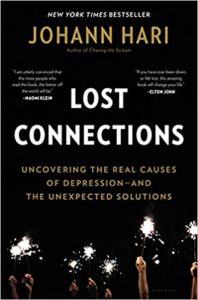
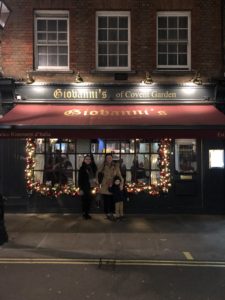 Meal – On the Tale of Three Cities trip I hosted in October, one night we ate at Giovanni’s restaurant in the theater district of London. The place only seats about 35 so we were in tight quarters. A family from Sicily has run the restaurant for decades. The two hour meal was delicious and the conversation was memorable. I was reminded of the wonderful things that can happen around a meal.
Meal – On the Tale of Three Cities trip I hosted in October, one night we ate at Giovanni’s restaurant in the theater district of London. The place only seats about 35 so we were in tight quarters. A family from Sicily has run the restaurant for decades. The two hour meal was delicious and the conversation was memorable. I was reminded of the wonderful things that can happen around a meal.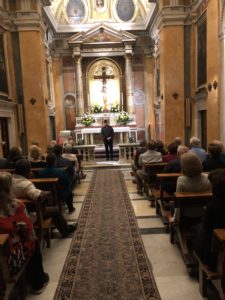
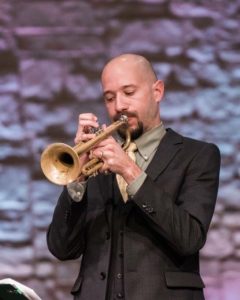 Person of the year – Jason Webb. Jason is the director of media at SCC. He is competent, multi-talented (professional trumpet player, mathematician), hard worker, low-maintenance, great emotional and social skills. Clone Jason and the world will be a better place.
Person of the year – Jason Webb. Jason is the director of media at SCC. He is competent, multi-talented (professional trumpet player, mathematician), hard worker, low-maintenance, great emotional and social skills. Clone Jason and the world will be a better place.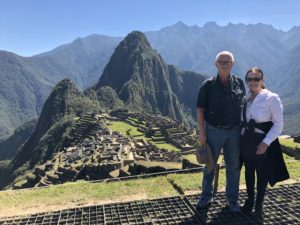
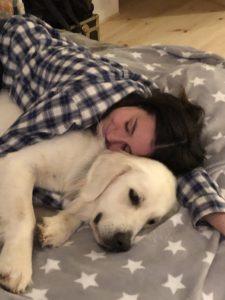 Best friend – Here’s a picture of my best friend (my granddaughter, Marin, is also in the picture). All joking aside, I’ve had Buddy for 14 months and he has become my therapy dog-we visit about important and trivial issues every night before I go to bed.
Best friend – Here’s a picture of my best friend (my granddaughter, Marin, is also in the picture). All joking aside, I’ve had Buddy for 14 months and he has become my therapy dog-we visit about important and trivial issues every night before I go to bed.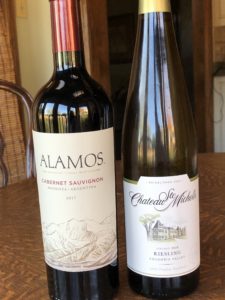 Bottle of wine – Instead of highlighting the best wine I had this year (Hentley Farms, The Beast, 2012 Shiraz) I want to recommend two satisfactory table wines. Chateau St. Michelle Riesling is made in Washington and sells for around $8; Alamos is a Cabernet Sauvignon from Argentina that sells for around $9. You don’t have to spend a lot of money to get a decent wine for every day consumption.
Bottle of wine – Instead of highlighting the best wine I had this year (Hentley Farms, The Beast, 2012 Shiraz) I want to recommend two satisfactory table wines. Chateau St. Michelle Riesling is made in Washington and sells for around $8; Alamos is a Cabernet Sauvignon from Argentina that sells for around $9. You don’t have to spend a lot of money to get a decent wine for every day consumption. 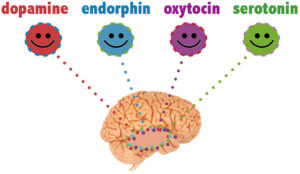


 Reading is not a chore. Reading is theft. It is robbery. Someone smarter than you has spent years struggling to solve a problem or researching a new idea. You can steal that hard earned knowledge and make it yours just by reading her book. And you won’t be arrested.
Reading is not a chore. Reading is theft. It is robbery. Someone smarter than you has spent years struggling to solve a problem or researching a new idea. You can steal that hard earned knowledge and make it yours just by reading her book. And you won’t be arrested.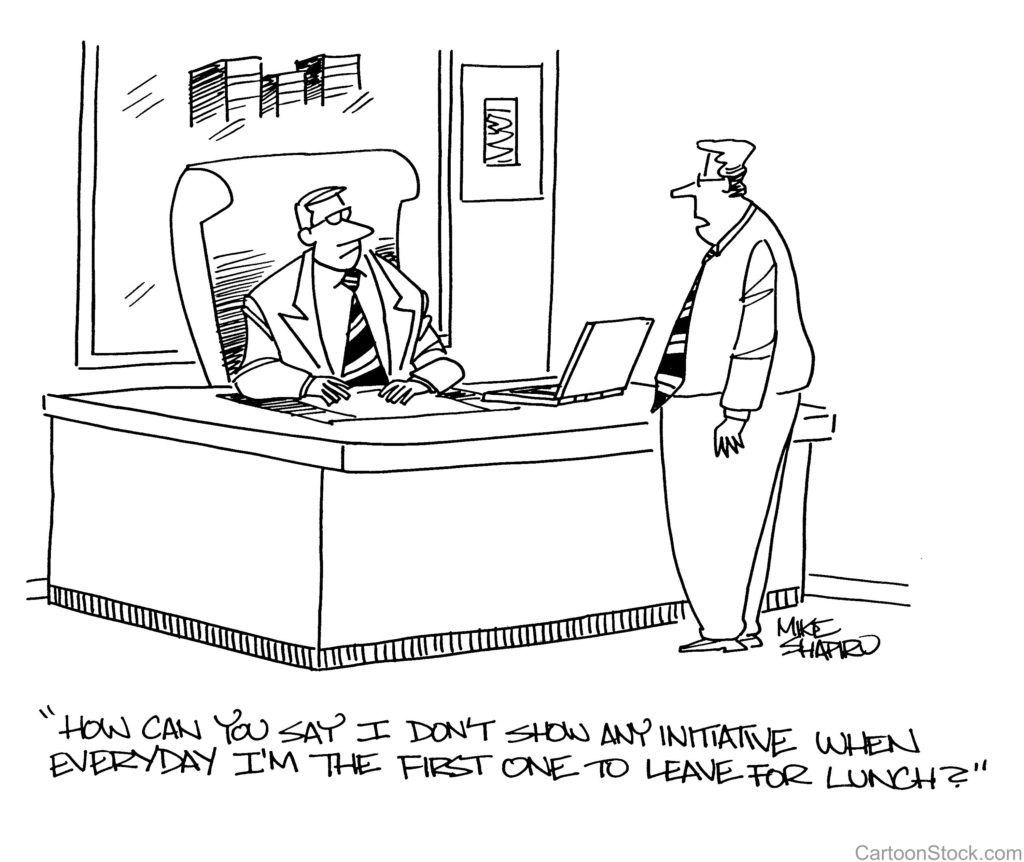
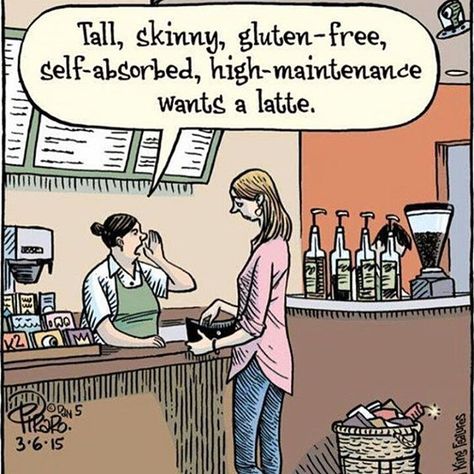 When I first started my career as a minister, a friend gave me some good advice about maintaining a healthy balance of three types of relationships: takers, balanced, and givers.
When I first started my career as a minister, a friend gave me some good advice about maintaining a healthy balance of three types of relationships: takers, balanced, and givers.